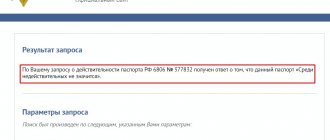Compensation for harm to the victim in a criminal case
Committing a crime inevitably entails causing harm, both material damage and moral harm (if we are talking about individuals). And, of course, compensation for harm caused by a crime is the central and perhaps the most important problem of law enforcement practice. From the contents of Part 1 of Art. 44 of the Code of Criminal Procedure of the Russian Federation makes it clear that in criminal proceedings the following claims can be considered: – for compensation for property damage caused by a crime; – about monetary compensation for moral damage caused by the crime. Property damage (damage caused to property; a similar concept to “losses”) is the difference in the property status of the victim before and after the offense (in our case, a crime) minus the defect in the property, as well as lost profits. It is compensated on the basis of Articles 1064-1083 of the Civil Code of the Russian Federation, as well as norms of other branches of law providing for special cases of property liability. According to the rules of the same chapter of the Civil Code of the Russian Federation (Articles 1084-1094), civil claims for compensation for harm caused to life and health, when such harm has a property expression, can also be satisfied in criminal proceedings. The victim has the right to demand compensation in monetary terms for the moral damage caused to him (part 4 of article 42, part 1 of article 44 of the Code of Criminal Procedure). The rules for calculating and compensating for moral damage are provided for in Articles 1099-1101 of the Civil Code of the Russian Federation. Moral harm is understood as moral or physical suffering caused by actions (inaction) that encroach on intangible benefits belonging to a citizen from birth or by force of law (life, health, personal dignity, business reputation, privacy, personal and family secrets, etc. .) or violating his personal non-property rights (the right to use his name, the right of authorship and other non-property rights in accordance with the laws on the protection of rights to the results of intellectual activity) or violating the property rights of a citizen. According to paragraph 2 of Art. 1101 of the Civil Code of the Russian Federation, the amount of compensation for moral damage is determined by the court depending on the nature of the physical and moral suffering caused to the victim, as well as the degree of guilt of the harm-doer in cases where guilt is the basis for compensation for harm. When determining the amount of compensation for harm, the requirements of reasonableness and fairness must be taken into account. Victims may also be asked about compensation for physical harm. Physical harm is expressed in damage to health or causing death. It is clear that in this case we can only talk about compensation for damage of the first kind. According to Part 1 of Art. 1085 of the Civil Code of the Russian Federation, when a citizen is injured or otherwise damaged his health, the victim’s lost earnings (income) that he had or definitely could have, as well as additional expenses incurred caused by damage to health, including expenses for treatment, additional food, purchase medications, prosthetics, outside care, sanatorium treatment, purchase of special vehicles, preparation for another profession, if it is established that the victim needs these types of help and care and is not entitled to receive them free of charge. Source: “Bulletin of the Prosecutor’s Office of the Kama Region”
Is the victim always required to testify?
Lawyer Antonov A.P.
The inalienable right of the victim is the right to testify. It is enshrined in clause 2, part 2, art. 42 of the Code of Criminal Procedure of the Russian Federation.
The victim gives evidence when he makes an oral speech during an interrogation, confrontation and (or) verification of his testimony on the spot: he provides information by freely speaking and (or) answers the questions asked to him by the participants in the investigative action.
As a general rule, the testimony of the victim is the oral speech containing information relevant to the criminal case (more rarely, if it is impossible to communicate information orally, sign language, dactylology, or the content of the descriptive part of the interrogation protocol written by the victim in his own hand) of the interrogated person in accordance with Art. Art. 187 - 192, 194, 277, 279 and 280 of the Code of Criminal Procedure (without violating the norms of morality, truth), a person recognized as a victim (representative of the victim), the correctness of which is reflected in the interrogation protocol (confrontation, verification of testimony on the spot) he is ready to certify with his signature on each page of the investigative protocol.
Criteria for the testimony of the victim as an independent type of evidence:
a) the testimony of the victim is always oral speech (less often, if it is impossible to provide information orally, sign language, dactylology, or the content of the descriptive part of the interrogation protocol written by the victim in his own hand) of the specified person;
b) this is the oral speech of a person endowed with the status of a victim;
c) the testimony of the victim can be given only during interrogation, confrontation or during verification of his testimony on the spot;
d) repeated interrogation of the victim on circumstances that may testify against himself, his spouse and (or) his other close relatives, in the event of his refusal to testify at the first interrogation, can be carried out only at the request of the victim himself.
The testimony of the victim is the testimony of a participant in criminal proceedings on the part of the prosecution, and therefore a person personally interested in the case. This kind of oral speech cannot be assessed as the testimony of a disinterested witness.
The subject of the victim's testimony primarily concerns those circumstances (the nature and extent of the harm caused to him) that served as the factual basis for recognizing him as such.
During the interrogation, information may also be obtained from him:
1) about the event of a crime (time, place, method, means and other circumstances), as a result of which he suffered harm;
2) about the relationship between the subjects of criminal proceedings;
3) about his behavior immediately preceding the commission of the crime, during the commission and immediately after its completion;
4) about mitigating and aggravating circumstances;
5) about actions that characterize his personality;
6) about the circumstances that contributed to the commission of the crime, etc.
So, testimony is oral speech (less often, sign language, dactylology, or the content of the descriptive part of the interrogation protocol written by the victim himself). It is in this meaning that this term is used by the legislator in all but two cases of its use in paragraph 3 of Part 2 of Art. 42 of the Code of Criminal Procedure of the Russian Federation. This paragraph refers to the use of the victim’s testimony as evidence in a criminal case, including in the event of his subsequent refusal of this testimony.
When the victim refuses to verbally report information that he previously stated during interrogation (confrontation, verification of testimony on the spot), not his oral speech (sign language) will be used, but the content of another type of source of evidence - the protocol of the investigative action (interrogation protocol, confrontation , checking readings on site). In the situation under consideration, testimony refers to the content of the protocol of the investigative action (for example, the protocol of the interrogation of the victim), during which he previously did not refuse to testify.
In clause 2, part 2, art. 42 of the Code of Criminal Procedure of the Russian Federation secures the right of the victim to testify. Meanwhile, it can be implemented within the framework of the permissions enshrined in the law. They, on the one hand, provide for certain criminal procedural requirements for the procedure for conducting an investigative action and its recording, on the other hand, they provide the victim with some additional opportunities.
In clause 3, part 2, art. 42 of the Code of Criminal Procedure of the Russian Federation enshrines the right of the victim to refuse to testify against himself, his spouse and other close relatives, the circle of whom is defined in paragraph 4 of Art. 5 Code of Criminal Procedure of the Russian Federation. But this right is not identical to the right to receive clarification of the provisions of Art. 51 of the Constitution of the Russian Federation and, accordingly, cannot limit itself to providing the victim with just the opportunity under consideration. This is an independent right. The victim has several rights. One of them is to refuse to testify against oneself, one’s spouse and other close relatives, the other is to receive an explanation of one’s rights (including those provided for in Part 1 of Article 51 of the Constitution of the Russian Federation), duties and responsibilities.
An individual’s refusal to testify (refusal to testify) can theoretically be manifested both in actions (sending an appropriate written notice, proper oral communication after his appearance to participate in an investigative action, etc.) and inaction (failure to appear at the appointed time). time). Any action (inaction), the consequence of which was the failure of the investigator (inquirer, etc.), the court during interrogation (confrontation, verification of testimony on the spot) from a specific person who has information related to the criminal case (in our case, the victim) , relevant information, should be consistently regarded as the latter’s refusal to testify.
The refusal of the victim to testify against himself, his spouse and other close relatives is his right, not his obligation. The fact that the victim took advantage of the right granted to him cannot in any case be regarded as a fact (circumstance) that negatively characterizes his personality.
Sincerely, lawyer Anatoly Antonov, managing partner of the law firm Antonov and Partners.
Still have questions for your lawyer?
Ask them right now here, or call us by phone in Moscow +7 (499) 288-34-32 or in Samara +7 (846) 212-99-71 (24 hours a day), or come to our office for a consultation (by pre-registration)!
The right of the victim to compensation for moral damage
Lawyer Antonov A.P.
Special place in st. 42 of the Code of Criminal Procedure of the Russian Federation is devoted to the rules of compensation to the victim for moral damage caused by the crime. Part 4 of this article states that “at the request of the victim for compensation in monetary terms for moral damage caused to him, the amount of compensation is determined by the court when considering a criminal case or in civil proceedings.”
The victim has the right to file a claim for monetary compensation for moral damage caused to him. In this case, a claim is understood as a written request addressed to the preliminary investigation body, prosecutor, judge or court by the victim for compensation for the crime (socially dangerous act) caused to him in the appropriate form of moral damage.
For a long time, the issue of civil liability for non-material damage caused remained controversial. The result of the discussion was the recognition of the need and possibility of compensation for moral damage in monetary terms, equal to the material damage usually caused by the crime. However, this provision is not a rule; it only reflects the practice that has developed in a number of places. The Plenum of the Supreme Court of the Russian Federation in its Resolution “On the Judicial Sentence” not only repeatedly confirmed the legality of presenting property claims for causing moral damage, but also noted that when determining the amount of compensation for moral damage, it is necessary to take into account the nature of the physical and moral suffering caused to the victim associated with his individual features, the degree of guilt of the defendant, his financial situation and other specific circumstances of the case that influence the court's decision on the claim. In all cases, when determining the amount of compensation for moral damage, the requirements of reasonableness and fairness must be taken into account.
Moral damage is subject to compensation not only according to the content of Part 4 of Art. 42 of the Code of Criminal Procedure of the Russian Federation, but also in accordance with the provisions of Art. Art. 151, 1099, 1100, 1101 Civil Code of the Russian Federation. It is reimbursed in monetary terms, that is, calculated in a certain amount of money. The monetary expression of moral damage can only be realized in the currency of the Russian Federation. And not in any type of currency, but only in banknotes in the form of banknotes and (or) coins of the Bank of Russia, in circulation as a legal means of cash payment on the territory of the Russian Federation.
Resolving the civil claim of the victim by collecting amounts calculated not in rubles, but in foreign currency, for example, in US dollars, is illegal, since it violates Art. 9 of the Federal Law of December 10, 2003 N 173-FZ “On Currency Regulation and Currency Control”. Meanwhile, it is possible to recover amounts in ruble equivalent.
In practice, there are numerous cases of creating artificial obstacles to the compensation of moral damage caused to victims as a result of damage to the victim’s property. This happens because among some lawyers there is an opinion that moral harm can only be caused when the crime causes physical harm to the victim, i.e. in cases of harm to life and (or) health. These same lawyers argue that moral damage is not subject to compensation if, for example, fraud has been committed. In this case they refer to Part 2 of Art. 1099 of the Civil Code of the Russian Federation.
Without disputing the possibility of interpreting the current law in a historical context, let us doubt the impeccability of just such an interpretation.
Yes, indeed, according to Part 2 of Art. 1099 of the Civil Code of the Russian Federation “moral damage caused by actions (inaction) that violate the property rights of a citizen is subject to compensation in cases provided for by law.” But the Code of Criminal Procedure of the Russian Federation is the law. Based on the contents of Parts 1 and 4 of Art. 42, clause 3, part 1, art. 389.26 of the Code of Criminal Procedure of the Russian Federation, the victim has the right to compensation in monetary terms for the moral damage caused to him by the crime. In other words, the Code of Criminal Procedure of the Russian Federation is the law that provides for the case (the commission of a crime against a person) when moral damage caused by actions (inaction) that violate the property rights of a citizen is subject to compensation.
This circumstance is directly indicated in the Resolution of the Plenum of the Supreme Court of the Russian Federation of December 20, 1994 No. 10 “Some issues of application of legislation on compensation for moral damage.” According to paragraph 9 of the said Resolution “...by virtue of the current legislation, liability for moral damage caused...can be applied both along with property liability and independently.
In relation to Article 44 of the Code of Criminal Procedure of the Russian Federation, the victim, that is, a person to whom moral, physical or property harm has been caused by a crime (Article 42 of the Code of Criminal Procedure of the Russian Federation), has the right to file a civil claim for compensation for moral damage in criminal proceedings.”
And in para. 1, paragraph 2 of the same Resolution, the Plenum of the Supreme Court of the Russian Federation clarifies: “Moral harm is understood as moral or physical suffering caused by actions (inaction) ... violating the property rights of a citizen.”
The possibility and legality of compensation in monetary terms for moral damage caused to a citizen, along with the satisfaction of his claim for compensation for material damage (losses and other material claims), is also assumed by the wording of paragraph. 1 clause 8 of the same Resolution. Here, in particular, Fr.
The amount of compensation for moral damage caused by a crime “is determined by the court when considering a criminal case or in civil proceedings,” and not only “in civil proceedings,” as I.B. mistakenly believes. Kolchevsky.
This rule means that the court is obliged to evaluate both the content (legality, validity) of the claim made by the victim, and the proof of the amount of harm caused to the victim.
When the issue of compensation for moral damage is related to the assessment of all the circumstances of the case, it must be resolved within the framework of criminal proceedings based on the totality of all the circumstances established in the case by the court.
When determining the amount of money to be compensated for moral damage, the court must take into account the real financial situation of the accused (marital status, whether he has a job, dependents, the severity of the harm caused to the victim, for example, harm to health, etc.).
When rendering a verdict, the court is obliged to provide reasons justifying the full or partial satisfaction of the claim or its refusal, and indicate the extent to which the claims of the civil plaintiff are satisfied.
When rendering a guilty verdict, the court is obliged to resolve the civil claim brought by the victim in the case. Only if it is necessary to make additional calculations related to a civil claim, requiring a postponement of the trial, and when this does not affect the court’s decision on the classification of the crime, the measure of punishment and other issues arising when reaching a verdict, the court may recognize the victim (civil plaintiff) the right to satisfy a civil claim and submit the issue of the amount of compensation for a civil claim for consideration in civil proceedings.
If, during the hearing of the case, the court nevertheless comes to the conclusion that it is necessary to transfer the issue of the size of the civil claim for consideration in civil proceedings, then it, if there are grounds for this, has the right, by private ruling, to draw the attention of the relevant officials to the incompleteness of the preliminary investigation, which entailed the need making the said decision.
When rendering a guilty verdict, the court does not have the right to leave a civil claim brought by the victim without consideration.
The court cannot refuse to satisfy a civil claim, and the issue of its size cannot be submitted for consideration in civil proceedings simply because the victim did not present to the court documents confirming the amount of the claim.
Moral damage caused by the actions of a minor aged 14 to 18 years, in accordance with Article 1074 of the Civil Code of the Russian Federation, is subject to compensation by the direct cause of harm. If his property is insufficient, additional responsibility may be assigned to his parents, adoptive parents, trustees, foster parents, an organization for orphans and children left without parental care, under whose supervision the minor was placed, unless they prove that the harm did not arise it's their fault. When determining the amount of compensation for moral damage to the court, taking into account the requirements of Art. 151 of the Civil Code of the Russian Federation, the principles of reasonableness and justice should be based on the degree of moral or physical suffering associated with the individual characteristics of the victim, the degree of guilt of the offender and other noteworthy circumstances of the case.
And one last thing. The form of reparation for the harm caused to the victim is not defined by law. Therefore, any of them is acceptable if it does not violate the requirements of any law or other regulatory act. In particular, in monetary terms, compensation is acceptable not only for property and moral damage, but also for physical harm caused to the victim of a crime.
Sincerely, lawyer Anatoly Antonov, managing partner of the law firm Antonov and Partners.
Still have questions for your lawyer?
Ask them right now here, or call us by phone in Moscow +7 (499) 288-34-32 or in Samara +7 (846) 212-99-71 (24 hours a day), or come to our office for a consultation (by pre-registration)!
Grounds and procedure for compensation for damage caused by the crime to the victim and other persons
13.12.: 4030
In accordance with Art. 52 of the Constitution of the Russian Federation The rights of victims of crimes and abuse of power are protected by law. The state provides victims with access to justice and compensation for harm caused. According to the criminal procedural legislation, a person is recognized as a victim of a crime if there are grounds to believe that moral, physical or property harm was directly caused to him by the crime, including as a result of a socially dangerous act committed by an insane person or a minor.
In accordance with Art. 42 of the Criminal Procedure Code of the Russian Federation, the basis for recognizing an individual as a victim is the fact that a crime caused him physical, property, and moral harm.
Physical harm consists of impairment of health, bodily harm, physical and mental suffering. Property damage is theft of property, damage and destruction of material assets. Moral harm consists of moral or physical suffering (for example, insult, humiliation, a feeling of inferiority, discomfort, physical pain) experienced (experienced, endured) by the victim as a result of an unlawful act committed against him.
When determining the amount of compensation for moral damage, the following is taken into account: the nature of the physical and moral suffering caused to the victim, associated with his individual characteristics; the degree of guilt of the defendant, his financial situation; other circumstances of the case influencing the decision on the claim.
Criminal procedural legislation recognizes not only an individual, but also a legal entity as a victim. The basis for recognizing a legal entity as a victim is the fact that the crime caused damage to its property and business reputation. The victim has the right to compensation for property damage caused by the crime by filing a civil claim.
In addition, the victim also has the right to file a civil claim for monetary compensation for moral damage, regardless of compensation for property damage.
A claim for compensation for material damage or compensation for moral damage caused by a crime can also be considered in civil proceedings. Date modified: 12/13/2019 18:04:27 Number of impressions: 4030
Protecting the rights and representing the interests of the victim
This Personal Data Privacy Policy (hereinafter referred to as the “Policy”, “Privacy Policy”) applies to all information that Ramki Zakon LLC (hereinafter referred to as the “Company”) can obtain about the User while using the website located at: https ://lawforyou.ru/, as well as services, services, programs, products or services, and during the execution by the Company of any agreements and contracts with the User, including the possibility of sending information, including advertising (hereinafter referred to as “Use”).
Use of the Company’s services means the User’s unconditional consent to this Policy and the conditions for processing his personal information specified therein; in case of disagreement with these conditions, the User must refrain from use.
The Company assumes that the User who initiates Use consciously determines his requests and controls the technical parameters of the equipment he uses, and has also familiarized himself with this Policy in full. If the User disagrees with the Policy, Use must be terminated.
1. GENERAL PROVISIONS
1.1. Within the framework of this Policy, the User’s personal information means:
1.1.1. Personal information that the User provides about himself independently during registration (creating an account/personal account) or in the process of participating in the Use, including the User’s personal data. Information required for the provision of Services is marked in a special way. Other information is provided by the User at his discretion.
1.1.2. Data that is automatically transmitted as a result of the User’s Use using software installed on the User’s device, including IP address, cookie data, information about the User’s browser (or other program through which services are accessed), technical characteristics of the equipment and software used by the User, date and time of access to services, addresses of requested pages and other similar information.
1.1.3. Other information about the User, the processing of which is provided for in the Agreement for the use of the Site and/or the possible receipt of which is technically determined.
1.1.4. This Privacy Policy applies only to the Site https://lawforyou.ru/. The Company does not control and is not responsible for third party sites, which the User can access via links available on the Site https://lawforyou.ru/.
2. PURPOSES OF PROCESSING USERS’ PERSONAL INFORMATION
2.1. The Company collects and stores only that personal information that is necessary to provide/receive Use, including the execution of agreements and contracts with the User, except in cases where the law provides for mandatory storage of personal information for a period specified by law.
2.2. The Company processes the User’s personal information for the following purposes:
2.2.1. Identification of the User, within the framework of Use, for processing requests, execution of agreements and contracts with the Company.
2.2.2. Providing the User with the opportunity for personalized Use and execution of agreements and contracts;
2.2.3. Establishing feedback with the User, including sending notifications, requests regarding Use, execution of agreements and contracts, provision of services, processing requests and applications from the User, including possible mailings of informational and advertising nature;
2.2.4. Improving the quality of Use, convenience, developing new features and options for Use;
2.2.5. Targeting of advertising materials;
2.2.6. Conducting statistical and other studies based on anonymized data;
2.2.7. Creating an account if the User has given consent (including through his/her implied actions) to create an account.
2.2.8. Providing the User with effective customer and technical support if problems arise related to the use of the Site.
3. CONDITIONS FOR PROCESSING USERS’ PERSONAL INFORMATION AND ITS TRANSFER TO THIRD PARTIES
3.1. With regard to the User's personal information, its confidentiality is maintained, except in cases where the User voluntarily provides information about himself for general access to an unlimited number of persons. When using certain Use options, the User agrees that a certain part of his personal information becomes publicly available.
3.2. The Company has the right to transfer the User’s personal information to third parties in the following cases:
3.2.1. The user agreed to such actions.
3.2.2. The transfer is necessary for the User to use a certain service or to fulfill a certain agreement or contract with the User.
3.2.3. The transfer is provided for by Russian or other applicable legislation within the framework of the procedure established by law.
3.2.4. Such a transfer occurs as part of the sale or other transfer of a business (in whole or in part), and all obligations to comply with the terms of this Policy in relation to the personal information received by him are transferred to the acquirer;
3.2.5. In order to ensure the possibility of protecting the rights and legitimate interests of the Company or third parties in cases where the User violates the provisions of the current legislation of the Russian Federation in this area, or documents containing the conditions for using specific options of Use, as well as this document;
3.2.6. As a result of processing the User's personal information by depersonalizing it, anonymized statistical data may be obtained, which is transferred to a third party to conduct research, perform work or provide services on behalf of the Company.
3.3. The processing of the User's personal data is carried out without a time limit in any legal way, including in personal data information systems using automation tools or without the use of such tools. The processing of Users’ personal data is carried out in accordance with Federal Law dated July 27, 2006 N 152-FZ “On Personal Data”.
3.4. In case of loss or disclosure of personal data, the Company informs the User about the loss or disclosure of personal data.
3.5. The Company takes the necessary organizational and technical measures to protect the User’s personal information from unauthorized or accidental access, destruction, modification, blocking, copying, distribution, as well as from other unlawful actions of third parties.
3.6. The Company, together with the User, takes all necessary measures to prevent losses or other negative consequences caused by the loss or disclosure of the User’s personal data.
4. OBLIGATIONS OF THE PARTIES
4.1. The user is obliged:
4.1.1. Provide information about personal data necessary for Use.
4.1.2. Update and supplement the provided information about personal data if this information changes.
4.2. The society is obliged:
4.2.1. Use the information received solely for the purposes specified in this Privacy Policy.
4.2.2. Ensure that confidential information is kept secret, not disclosed without the prior written permission of the User, and also not sell, exchange, publish or disclose in other possible ways the transferred personal data of the User, except as provided for in this Privacy Policy.
4.2.3. Take precautions to protect the confidentiality of the User's personal data in accordance with the procedure generally used to protect this type of information in existing business transactions.
4.2.4. Block personal data relating to the relevant User from the moment of application or request from the User or his legal representative or the authorized body for the protection of the rights of personal data subjects for the period of verification in the event of detection of unreliable personal data or unlawful actions.
4.3. The user can at any time change (update, supplement) the personal information provided by him or part of it, and can also delete the personal information provided by him within a certain account.
4.4. The rights provided for in paragraphs.
4.3. of this Policy may be limited in accordance with legal requirements. In particular, such restrictions may provide for the obligation of the Company to retain information changed or deleted by the User for a period established by law, and to transfer such information in accordance with the legally established procedure to a government agency.
5. PROCESSING OF PERSONAL INFORMATION USING COOKIES AND COUNTERS
5.1. Cookies available on the User's equipment for any reason may be used by the Company to provide the User with personalized usage options, to target/distribute information/advertising that is shown to the User, for statistical and research purposes, as well as to improve Usage options.
5.2. The User understands that the equipment and software used for Use may have the function of prohibiting operations with cookies (for any sites or for certain sites), as well as deleting previously received cookies.
5.3. The Company has the right to establish that the provision of certain Use options is possible only on the condition that the acceptance and receipt of cookies is permitted by the User.
5.4. The structure of the cookie file, its content and technical parameters are determined at the discretion of the Company and may be changed without prior notice to the User.
5.5. Counters placed by the Company during Use can be used to analyze the User's cookies, to collect and process statistical information and for other purposes. Technical parameters of the meters are determined by the Company and may be changed without prior notice to the User.
6. MEASURES USED TO PROTECT THE USER'S PERSONAL INFORMATION
6.1. The Company takes necessary and sufficient organizational and technical measures to protect the User’s personal information from unauthorized or accidental access, destruction, modification, blocking, copying, distribution, as well as from other unlawful actions of third parties with it.
6.2. The Company uses information from the User’s profile (login and password) to authorize access to the Use. The User is responsible for the safety of this information, including login and password. Any actions performed using it are considered by the Company to have been performed by the User. Transferring the user's own login and password to third parties is prohibited. If the User becomes aware of the login and password of another user, as well as other confidential information about the latter, he is obliged to notify the Company about this and not use the specified information that has become known to him.
6.3. The User's access to the Use may involve accessing third party Internet resources and downloading from them program code and/or graphic objects (including those invisible when the browser displays Internet pages) used for advertising purposes and for collecting statistics. The owners of these resources have the technical ability to collect information about the User and independently determine the conditions for its use. By configuring the software, the User has the ability to block requests for graphic images hosted on third-party servers, however, this may lead to loss of readability and errors when displaying resources. When users move from the Company's Use pages to the pages of Internet resources of third parties, the User independently determines the limits of the use of information about them within the framework of the conditions and rules determined by the owners of the relevant Internet resources.
6.4. The Company's Internet resources may contain links to resources of third parties to which this document does not apply. The Company is not responsible for the actions of third parties using the Company’s Internet resources in their activities.
6.5. Ensuring the security of the User's personal data is achieved by monitoring to identify threats to the security of personal data during their processing; application of organizational and technical measures to ensure the security of personal data during their processing; by assessing the effectiveness of measures taken to ensure the security of personal data; by detecting facts of unauthorized access to Personal Data and taking measures to eliminate them; by establishing rules for access to personal data; by monitoring the measures taken to ensure the security of personal data.
7. CHANGES TO THE PRIVACY POLICY. APPLICABLE LAW
7.1. The Company has the right to unilaterally make changes to this Privacy Policy at any time.
7.2. The new Privacy Policy comes into force from the moment it is posted on the Site, unless otherwise provided by the new edition of the Privacy Policy.
7.3. This Policy and the relationship between the User and the Company arising in connection with the application of the Privacy Policy are subject to the law of the Russian Federation.
8. RIGHTS AND OBLIGATIONS OF THE PARTIES
8.1. The Site user has rights determined by the provisions of the current legislation of the Russian Federation.
8.2. When visiting and using the Company’s Internet resources, the User is obliged to: comply with the provisions of the current legislation of the Russian Federation and this document; compensate for losses incurred by the Company, other Users or third parties as a result of violation of the Policy or the legislation of the Russian Federation; comply with the provisions of the documents governing the Use, as well as the legislation of the Russian Federation; familiarize yourself with all legal information posted on the Site or accessible on it through links.
8.3. When using, the User is prohibited from: publishing and distributing any information that:
- contains threats, discredits, insults, discredits honor and dignity or business reputation or violates the privacy of other Site Users or third parties;
- violates the rights of minors;
- is obscene, contains obscene language, contains pornographic images and texts or scenes of a sexual nature involving minors;
- contains scenes of violence or inhumane treatment of animals;
- contains a description of the means and methods of suicide, any incitement to commit it;
- promotes and/or contributes to the incitement of racial, religious, ethnic hatred or enmity, promotes fascism or the ideology of racial superiority; contains extremist materials;
- promotes criminal activity or contains advice, instructions or guidelines for committing criminal acts;
- contains restricted information, including, but not limited to, state and commercial secrets, information about the private life of third parties;
- contains advertising or describes the attractiveness of drug use, information about the distribution of drugs, recipes for their manufacture and advice on use; is fraudulent;
- violates the rights of third parties to the results of intellectual activity;
- violates the rights of personal data subjects;
- violates other rights and interests of citizens and legal entities or the requirements of the legislation of the Russian Federation.
8.4. The user is prohibited from:
- carry out mass mailings of messages;
- use software and carry out actions aimed at disrupting the normal functioning of the technical capabilities and equipment of the Company;
- publish and distribute on the Site or otherwise use viruses, Trojan horses and other malicious programs;
- post commercial and political advertising on the Site;
- carry out other actions that may harm the Company, third parties, and Users.
9. DISPUTE RESOLUTION
9.1. Before filing a claim in court regarding disputes arising from the relationship between the User and the Company, it is mandatory to submit a claim (a written proposal for a voluntary settlement of the dispute).
9.2. The recipient of the claim, within 15 calendar days from the date of receipt of the claim, notifies the claimant in writing of the results of consideration of the claim.
9.3. If an agreement is not reached, the dispute will be referred to the Dzerzhinsky District Court of St. Petersburg or the Arbitration Court of St. Petersburg and the Leningrad Region in accordance with the current legislation of the Russian Federation.
10. ADDITIONAL TERMS
10.1. Any suggestions or questions regarding this Privacy Policy should be reported to
10.2. The current Privacy Policy is posted on the page at: https://lawforyou.ru
10.3. This Privacy Policy is an integral part of the Agreement for the use of the Site, located on the page at: https://lawforyou.ru/
By what procedural act is a person recognized as a victim?
Lawyer Antonov A.P.
Second sentence of Part 1 of Art. 42 of the Code of Criminal Procedure of the Russian Federation begins with the word “decision” and sounds like this: “The decision to recognize the victim as a victim is made immediately from the moment of initiation of a criminal case and is formalized by a resolution of the inquiry officer, investigator, judge or a court ruling.” Let's try to explain the rules enshrined here.
Under the term “decision” in the considered place of Art. 42 of the Code of Criminal Procedure of the Russian Federation is understood as an authoritative order emanating from the investigator (inquiry officer, etc.) and (or) the court (judge), in our case, to recognize a person (individual or legal) as a victim. Usually it is the result of the mental activity of the investigator (investigator, etc.) and (or) the court (judge) carried out in logical forms.
The investigator (inquiry officer, etc.), the court (judge) formalize the decision on recognition as a victim. The phrase “recognition as a victim” was used three more times by the legislator in Art. 42 of the Code of Criminal Procedure of the Russian Federation, namely in its parts 1, 2 and 9.
A person can be recognized as a victim both during the preliminary investigation and at the stages of preparation for a court hearing or other judicial stages.
The initiative to recognize a victim may belong directly to the citizen (enterprise, institution, organization) who was harmed by the crime, as well as to the investigator (inquiry officer, etc.) or the court (judge).
The investigator (inquiry officer, etc.) and the court (judge) make a decision on recognition as a victim. In other words, such a decision is made in relation to any person to whom physical, property, or moral harm (damage to property, business reputation) has been caused by a crime. Moreover, it must be adopted “immediately from the moment the criminal case is initiated.”
According to Part 1 of Art. 42 of the Code of Criminal Procedure of the Russian Federation, immediately after the initiation of a criminal case, a decision is made to recognize the victim as a victim. The legislator requires this procedural decision to be consolidated by a resolution (definition). But nowhere in the law does it indicate the period within which, after the decision is made, the corresponding resolution (definition) must be made. This circumstance may well be used by negligent investigators (interrogators, etc.), judges to justify their inaction.
The Code of Criminal Procedure of the Russian Federation provides for two forms of initiating a criminal case. The first, which is most often encountered, indeed, is a procedural decision on the availability of sufficient data at the disposal of the investigator (interrogating officer, etc.) indicating signs of the objective side of the crime, and provided for in Art. Art. 140 - 143 of the Code of Criminal Procedure of the Russian Federation, the source of such. This decision must be formalized by a resolution to initiate criminal proceedings.
The second form of initiating a criminal case, which proceduralists often forget about, is provided for some cases of private prosecution. It is enshrined in Parts 1 and 2 of Art. 318 Code of Criminal Procedure of the Russian Federation. We are talking about initiating a criminal case of private prosecution by submitting an application to the magistrate by the victim (his legal representative), and in the event of the death of the victim - by his close relative. After filing such an application, a person who has been harmed by a crime has the right to demand a ruling recognizing him as a victim. After all, after submitting the application, based on the contents of Parts 1 and 2 of Art. 318 of the Code of Criminal Procedure of the Russian Federation, a criminal case of private prosecution is considered initiated.
This second, atypical moment of initiating a criminal case must be taken into account when interpreting the second sentence of Part 1 of Art. 42 of the Code of Criminal Procedure of the Russian Federation. But the third sentence does not concern him, because in the situation discussed in parts 1 and 2 of Art. 318 of the Code of Criminal Procedure of the Russian Federation, at the time of initiation of a criminal case, information about the person who has been harmed by the crime cannot be missing. This information, as well as information about the identity document of the victim, must be reflected in the statement of crime.
Sincerely, lawyer Anatoly Antonov, managing partner of the law firm Antonov and Partners.
Still have questions for your lawyer?
Ask them right now here, or call us by phone in Moscow +7 (499) 288-34-32 or in Samara +7 (846) 212-99-71 (24 hours a day), or come to our office for a consultation (by pre-registration)!








